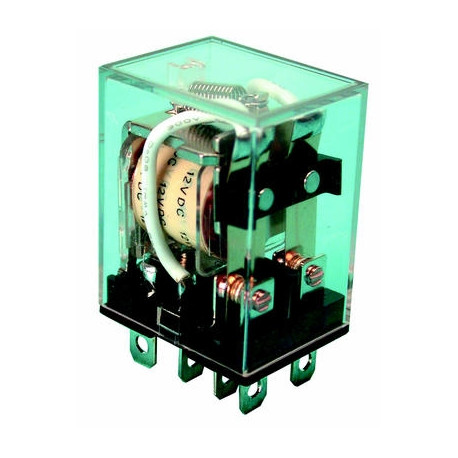Relays are an essential component in various industries, playing a crucial role in controlling electrical circuits. From automotive to telecommunications, relays are widely used to enable efficient and reliable operation. In this blog post, we will explore the significance of relays and why they are indispensable in modern technology.
- Ensuring Safety and Protection:
Relays act as a protective barrier between high-power circuits and sensitive control systems. By isolating the control circuit from the load circuit, relays prevent damage to delicate electronics and minimize the risk of electrical hazards. This safety feature is particularly critical in industries such as manufacturing, where the failure of a single relay can have severe consequences. - Enhancing Control and Automation:
Relays enable precise control and automation in various applications. With their ability to switch high currents or voltages based on low-power signals, relays serve as reliable control switches. They allow for the integration of complex control systems, facilitating automation processes in industries like robotics, HVAC (Heating, Ventilation, and Air Conditioning), and industrial machinery. - Extending Equipment Lifespan:
Electromechanical relays are known for their durability and longevity. By acting as an intermediary between the control and load circuits, relays help protect sensitive electronic components from wear and tear. This extends the lifespan of expensive equipment and reduces maintenance costs, making relays a cost-effective solution for industries that rely on long-lasting machinery. - Adapting to Diverse Environments:
Relays are designed to withstand harsh environmental conditions, making them suitable for a wide range of industries. Whether it's extreme temperatures, high humidity, or vibrations, relays can operate reliably in challenging environments. This adaptability makes them ideal for applications in automotive, aerospace, and marine industries, where reliability is paramount. - Enabling Fault Diagnosis and Troubleshooting:
Relays play a crucial role in fault diagnosis and troubleshooting processes. By monitoring the status of relays, technicians can identify potential issues and quickly isolate faulty components. This diagnostic capability saves time and effort in identifying and resolving problems, minimizing downtime in critical systems.
Conclusion:
Relays are an indispensable component in modern technology, providing safety, control, and reliability across various industries. From ensuring protection and extending equipment lifespan to enabling automation and fault diagnosis, relays unlock the power of efficient and secure electrical circuits. Embracing the versatility and functionality of relays is essential for industries seeking to optimize their operations and stay ahead in today's rapidly evolving technological landscape.
